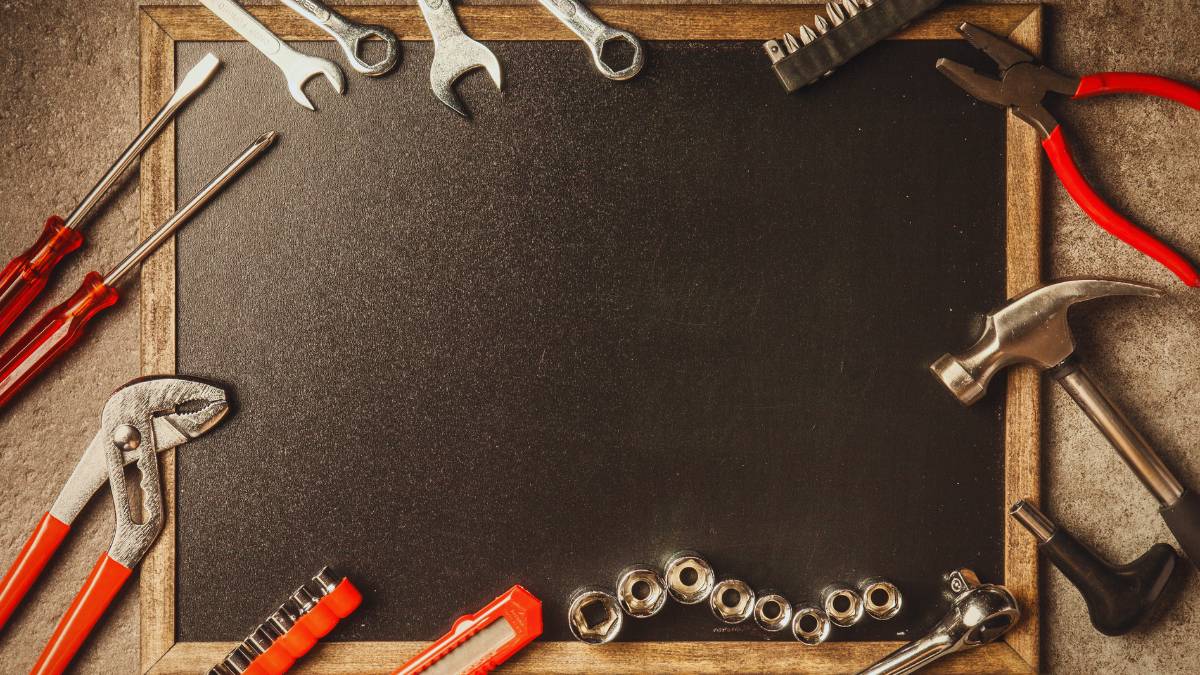Last Updated on June 14, 2024 by Kravelv Spiegel
Embarking on a DIY home improvement project can be both thrilling and rewarding. But, you need to know what you are doing and be able to roll out the upgrades in the most optimal manner possible.
The first requirement boils down to your experience. The second will pretty much boil to the tools you have at disposal. We’re here to help you out with this one.
So, whether you’re fixing up a fixer-upper or simply adding a new feature to your home, here are six essential types of tools to ensure your next project goes smoothly.
Power Drill and Accessories
A power drill is the cornerstone of any DIY toolkit. It’s versatile, allowing you to drill holes, drive screws, and even mix paint or drywall mud with the right attachments. Opt for a cordless drill for maximum mobility, especially if you’re working in tight spaces or outdoors.
Make sure to get a set of drill bits and screw-driving attachments. For instance, when installing kitchen cabinets, a power drill will let you quickly and securely drive screws into studs. It also makes hanging heavy items like shelves or curtain rods much easier, as it can drill into various materials such as wood, drywall, and masonry.
Measuring and Marking Tools
Precision is key in any DIY project, and that’s where measuring and marking tools come into play. Essential tools include a tape measure, a carpenter’s square, and a spirit level.
A tape measure helps you measure lengths and distances accurately, which is fundamental when cutting materials or planning layouts. For example, when mounting a TV on your wall, you want the screen to be perfectly aligned. You can’t do that without seriously precise measuring.
A carpenter’s square is indispensable for making sure your cuts are at right angles, while a spirit level ensures that everything you hang or install is perfectly horizontal or vertical. This is crucial for tasks like hanging a gallery wall or aligning tiles.
Casual Multi Tools for Everyday Chores
Multitools are the Swiss Army knives of the DIY world, combining several functions into one compact tool. They’re great for quick fixes and minor repairs, and they’re perfect for everyday chores. So, don’t even think about starting any project without some sort of quality pocket knives. They are small, they can stay with you 24/7 and they can plow through countless small chores you will encounter along the way. In other words, they are invaluable.
As for the rest, another popular tool comes bundled in packages which typically includes pliers, a knife, screwdrivers, and sometimes even a saw. These tools are incredibly handy for tasks like tightening screws, opening packages, or cutting small items.
For instance, if you need to fix a loose screw on a cabinet hinge, a multitool with a built-in screwdriver will let you handle it without searching for your toolkit.
Cutting Tools
Cutting tools are necessary for a wide range of materials. That covers anything ranging from soft wood to more robust metal, plastic and drywall. A handsaw, a utility knife, and a pair of tin snips are great basic tools to have.
A handsaw is perfect for cutting wood, whether you’re trimming molding or cutting lumber for a frame. A utility knife is incredibly versatile for scoring drywall, cutting insulation, or trimming excess material from flooring. Tin snips are designed for cutting metal sheets, making them ideal for tasks like installing gutters or HVAC ducts.
Sanding and Finishing Tools
Sanding and finishing tools are essential for any project involving wood or painted surfaces. These tools help you achieve a smooth, professional finish, whether you’re refinishing furniture or prepping walls for painting.
An electric sander saves a lot of time and elbow grease compared to sanding by hand. For example, when refinishing a dining table, an orbital sander can quickly strip off old paint or varnish and smooth out the wood grain. Sandpaper of various grits is also essential for detailed work and final finishing touches.
Fastening Tools
Fastening tools, including hammers, screwdrivers, and nail guns, are vital for assembling, hanging, and installing. Each tool has its unique advantages depending on the task at hand.
A claw hammer is a must-have for driving nails into wood and for removing them when necessary. It’s essential for framing, building furniture, or hanging heavy items. A set of screwdrivers, including both flat-head and Phillips-head, is indispensable for assembling furniture, installing hardware, and tightening fixtures.
For larger projects, a nail gun can be a game-changer. It speeds up the process of nailing and ensures each nail is driven precisely. For example, if you’re installing baseboards throughout your home, a nail gun will make the job much quicker and more efficient than using a hammer.
Conclusion
Having the right tools can make all the difference in your DIY home improvement projects. A power drill and accessories, precise measuring and marking tools, reliable cutting tools, versatile multitools, effective sanding and finishing tools, and essential fastening tools will equip you for almost any task.
So, there you have it – investing in these tools not only helps you complete your projects more efficiently but also makes the whole ordeal more worthwhile. Seriously, people will have a hard time believing you havens’ used help from professional handymen.

